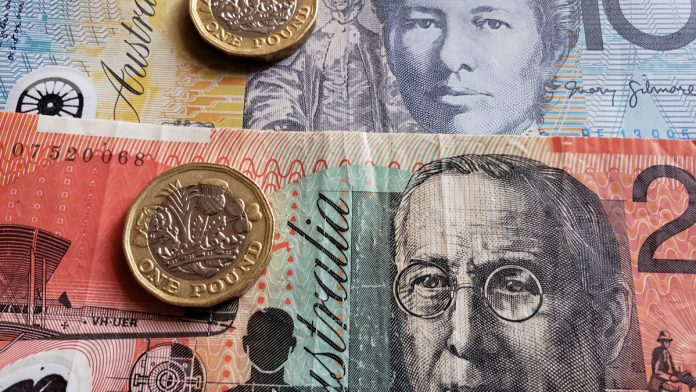- UK household spending -40% vs 30% expected by BoE
- China suspends imports of Australian red meat as trade tension rise
- Australian business confidence -46 vs -66 in March, Business conditions -34 vs -22 in March
- GBP/AUD +0.1% at 1.1920 at 09:15 UTC >> Real time exchange rates.
The Pound is pushing higher for a second straight session versus the risk sensitive Australian Dollar on Tuesday. The Pound Australian Dollar exchange rate settled on Monday +0.05% higher at 1.1910.
At 09:15 UTC, GBP/AUD is trading +0.1% at 1.1920 amid Australia – Sino trade tensions and as concerns grow over the impact that the coronavirus crisis will have on the UK economy.
The Pound was trading broadly lower versus its peers, albeit higher versus the Aussie, as real time data retrieved from bank account surveys revealed that British household spending tanked 40%. This is considerably worse than the 30% that the Bank of England forecast when it said that the UK was heading towards its worst recession in 300 years.
There is no high impacting UK data due for release today. However, Brexit talks will continue across the week keeping pressure on the Pound. These are the penultimate trade talks before the June deadline to decide whether or not to extend the transition period deadline. So far little progress has been made on sticking points, raising the prospect that the UK could experience a cliff edge exit at the end of the year.
The Australian dollar remains under pressure on Tuesday amid elevated trade tension between Australia and China. China has suspended imports of red meat from Australian abattoirs in what appears to be a politically motivated move.
The beef ban comes following an announcement from Beijing at the weekend that China intends to impose tariffs on Australian barely exports.
Analysts consider these trade tensions to be a result of Canberra’s call for an inquiry into the origins of the coronavirus outbreak.
Domestic data offered little support to the Aussie Dollar. According to the National Australian Bank business survey business confidence ticked up to -46, compared to -66 in March. However, the uptick provides little comfort given that the level is still twice as weak as the 1990’s recession.
Business conditions declined further in April to -34, down from -22 with a broad-based deterioration across industry sectors. The employment component of the report indicates that significant layoffs will occur, and the unemployment rate will rise significantly.





